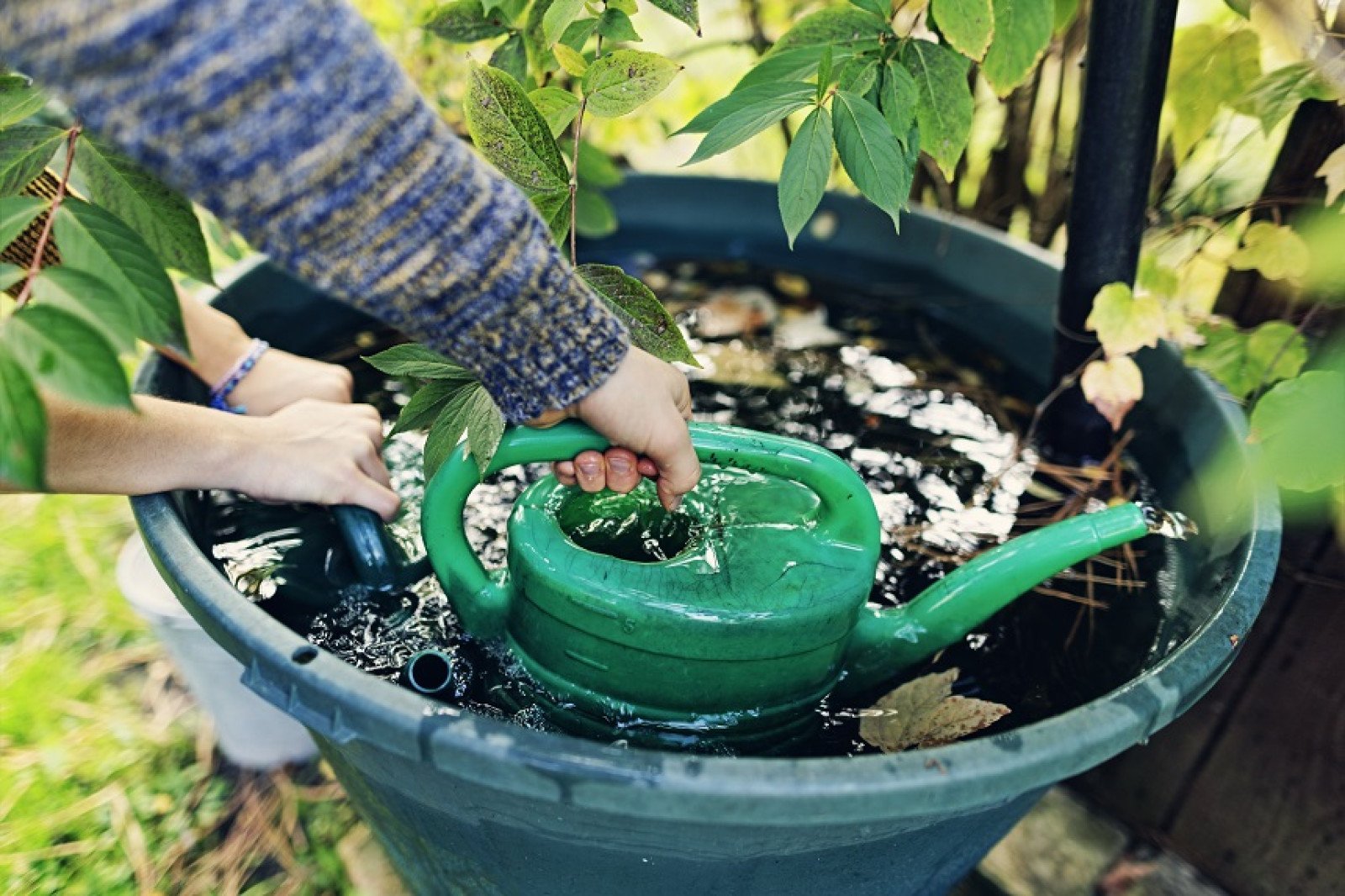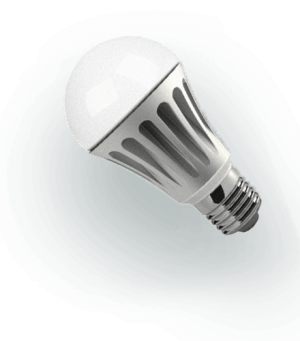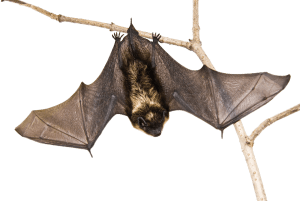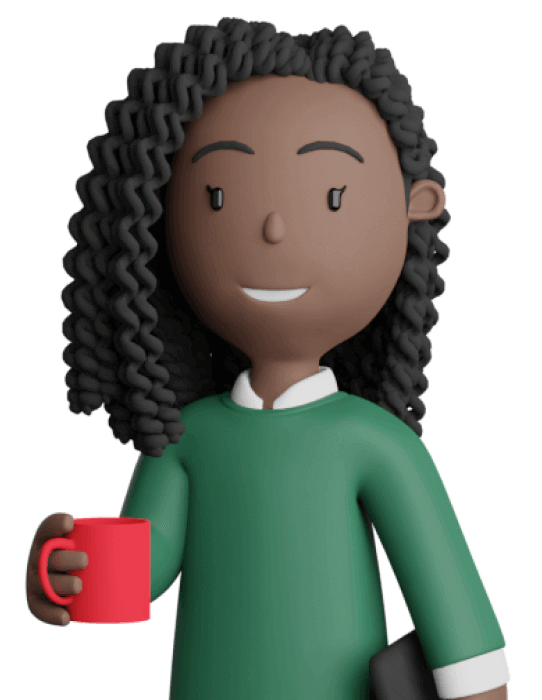Conserving water and protecting wildlife
Play a game about saving water and discover how this protects wildlife.

Overview
Students learn the connection between water conservation and wildlife habitat. They'll play a game to identify water saving and wasting habits, and discuss how water conservation helps wildlife by protecting their habitat.
Instructions
What you'll need
Open space for playing the game, such as outdoors, school grounds, or in the gym.
Introduction
- Start by discussing how living things need food, water, and safety in their habitat.
- Share that having a place to live is essential for everyone, including people, animals, and plants.
- Discuss how every habitat needs water because we're all connected to it: fish swim in it, bears, deer and other animals drink it, and trees need it to survive.
- Ask students to think of ways that humans use water. We use it to drink, shower, wash our clothes and dishes, play, and to also make electricity for our lights and electronic devices.
- If we waste water, we might not leave enough in the lakes for the fish and other animals and plants, but when we save water, we leave enough for everyone.
- Explain to students that we'll play a game about saving water. Power down the classroom, and head outdoors or the gym.
Water game
- Explain that you'll read out different scenarios, and for each one, they can decide whether it saves water or wastes it. If it wastes water, students will sit down or crouch on the ground. If it saves water, they'll do a “water wiggle” dance. Ask students to show you their best “water wiggle” dance.
- Read out each of the following scenarios and wait for students to either sit down or do their “water wiggle” dance.
- I always turn off the tap while I’m brushing my teeth. (saving)
- When I take a bath, I fill the tub all the way to the top. (wasting)
- I poured a glass of water for myself, took 2 sips, and dumped the rest down the sink. (wasting)
- I timed myself in the shower and finished showering in less than 5 minutes. (saving)
- After I washed my hands, I left the tap dripping. (wasting)
- In my room, I didn’t know which clothes on the floor were clean or dirty, so I just put them all in the laundry, even the clean ones. (wasting)
- I have a garden, and I use water collected in rain barrels to water the plants. (saving)
- At the end of the day, I have a little bit of water left in my water bottle, so I water the plants with it. (saving)
- I really wanted to clean my favourite shirt, so I asked my family if they had dirty clothes so I could fill up the washing machine before starting it. (saving)
- After dinner, I started the dishwasher, even though it was only half full. (wasting)
- I noticed a leaky tap at my house, so I made sure to fix it right away. (saving)
- After playing the game, discuss any of the scenarios that students seemed unsure about, such as why it’s better to run the washing machine and dishwasher when they're full, and what a rain barrel is, and why using rainwater instead of tap water helps save water.
- Have students share other ideas for how to save water.
Modify or extend this activity
- Have students make a water saving pledge, such as pledging to take shorter showers
- Follow up this game with the “Picture this off” activity to make a picture reminding us to save electricity.
Curriculum Fit
Grade 1 Science
Big Idea
- Living things have features and behaviours that help them survive in their environment. Sample question: How do local plants and animals depend on their environment?
Curriculum Competencies
Questioning and predicting
- Demonstrate curiosity and a sense of wonder about the world
- Observe objects and events in familiar contexts
- Ask questions about familiar objects and events
Make and record observations
- Make and record simple measurements using informal or non-standard methods
Processing and analyzing data and information
- Experience and interpret the local environment
Grade 1 Physical and Health Education
Content
- Daily physical activity helps us develop movement skills and physical literacy and is an important part of healthy living.
-how to participate in different types of physical activities, including games
Curricular competencies
Physical literacy
- Develop and demonstrate a variety of fundamental movement skills in a variety of physical activities and environments
Social and community health
- Develop and demonstrate respectful behaviour when participating in activities with others
Assessments
- Assess students’ understanding of how water is connected to plants, trees, wildlife and fish habitat.
- Assess students’ understanding of how to save water and why it’s important.
- Assess students’ participation and cooperation playing the game.
Teaching Notes
Clean energy powered by water
BC Hydro uses the power of falling water to create clean, reliable electricity. BC Hydro generates 97% clean energy.
Electricity conservation
Electricity conservation in B.C. is an important message since wasting energy also wastes water.
The following are some energy saving tips:
- Turn off unnecessary lights, or switch to LEDs, which reduce energy use by 75% compared to incandescent lights.
- Take shorter showers and switch to a low flow showerhead. A low flow showerhead uses nearly half the water per minute of a regular showerhead. This reduces both water and energy.
- Turn off water when washing hands and brushing teeth. Leaving the water running can waste 10 litres of water per minute.
- Unplug unused electronics. Standby power can account for 10% of an average household's annual electricity use.
- Be strategic with window coverings. Closing curtains and blinds at night can keep the heat in.
- Wash laundry in cold water, run full loads and hang it out to dry. This will save energy and your clothes will last longer.
See BC Hydro energy saving tips for additional tips and cost savings.
Water in our lives
In British Columbia, we use about 300 litres of water per person per day (Statistics Canada, 2013). We use water every day to drink, flush our toilets, brush our teeth, run our baths, grow and cook our food, wash our dishes and clothes, and make our electricity. Our province has a lot of surface water in lakes and rivers, but despite this, only one per cent of water on Earth is readily accessible to consume. When students understand how they use water, they can explore ways to reduce their water use.
Water conservation
At our reservoirs, changes in water levels can affect the spawning cycles of certain species of fish. Lower water levels in reservoirs impacts wildlife in the reservoirs and downstream, particularly during summer months. Across B.C., access to water relies on snowmelt. As the climate changes, warmer, wetter winters and longer, dryer summers mean less access to fresh water.
Water conservation is especially important during summer months, but it has benefits year-round. Using less water also decreases the amount of water that requires treatment, thus saving energy, and it reduces sewage and infrastructure costs. Overflowing of sewage systems during heavy rainfalls can lead to flooding and mudslides.







